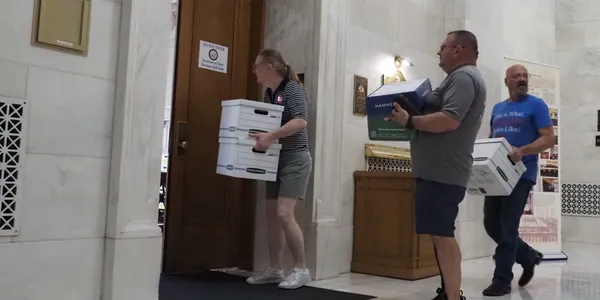AR Judge to Rule on Initiative for Signature Requirements
By: D. D. Reese
A legal battle is unfolding in Arkansas over Act 236, a 2023 law that significantly raises the requirements for citizen-led ballot initiatives. The law mandates that petitioners gather signatures from at least 50 of the state's 75 counties, up from the previous requirement of 15 counties. This change has prompted a lawsuit challenging the law's constitutionality, with a decision pending from Pulaski County Circuit Judge Herb Wright.
Background
The lawsuit, filed by the League of Women Voters of Arkansas and Republican State Senator Bryan King, argues that Act 236 violates the Arkansas Constitution. Specifically, they contend that the law conflicts with Article 5, Section 1, which stipulates that signatures must be collected from at least 15 counties. The plaintiffs assert that increasing the requirement to 50 counties imposes an undue burden on the initiative process, effectively amending the constitution without voter approval.
Judge Wright has allowed the plaintiffs to amend their complaint, expressing concerns about their legal standing. He is expected to rule on the case soon, with the possibility of the decision being appealed to the Arkansas Supreme Court.
Perspectives
Supporters of Act 236 argue that the law ensures broader geographic representation in the initiative process. They believe that requiring signatures from more counties prevents a few populous areas from dominating state policy decisions. Representative Kendon Underwood, a sponsor of the bill, stated that the change gives rural Arkansas more of a voice and aims to prevent out-of-state special interest groups from unfairly influencing elections.
Opponents, including the League of Women Voters, contend that the increased requirements make it significantly harder for grassroots organizations to qualify measures for the ballot. They argue that the law favors well-funded groups capable of managing the expanded logistical challenges, thereby undermining direct democracy. Critics also note that similar restrictions were rejected by voters in 2020 and 2022, indicating public opposition to such measures.
Broader Implications
The outcome of this case could have far-reaching effects on the ability of Arkansas citizens to propose and vote on laws directly. As the state awaits Judge Wright's decision, the debate highlights the tension between ensuring broad representation and maintaining accessible avenues for citizen participation in the democratic process.
